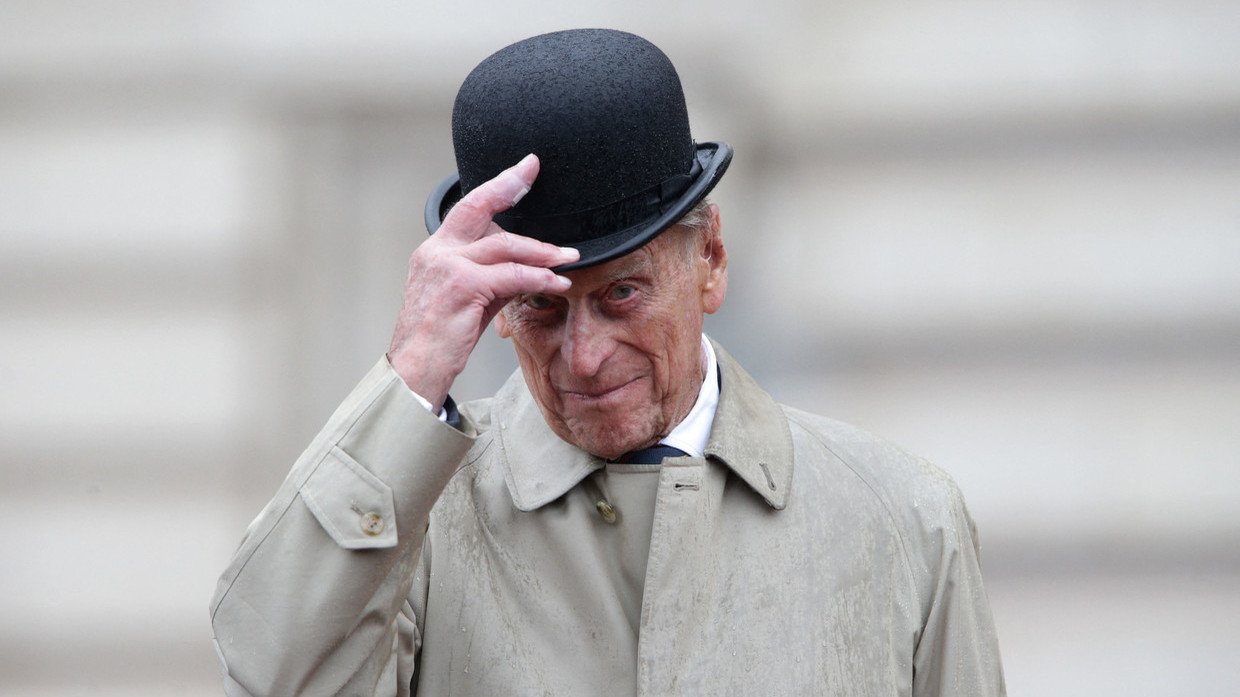The perpetually offended woke are increasingly comfortable using mental health to justify their campaigning – causing a university in London to issue a risible apology for the ‘crime’ of emailing a picture of Prince Philip.
There is something totally distasteful about King’s College London apologising to its staff for sending out a picture of Prince Philip after the duke’s death back in April.
The picture was accompanied by a seemingly innocuous text, which stated, “As the nation marks the death of HRH Prince Philip, the Duke of Edinburgh, we thought you might like to see this photo of the Duke at the official opening of the Maughan Library in 2002, which some colleagues will remember.”
Also on rt.com The circus around Prince Philip’s death shows MSM are addicted to the Royal soap opera… even if the public have had enoughFor any normal human being, the picture of the duke opening the library looks entirely unexceptional. Many of the recipients would have known that it was sent out in memory of an individual who had a long association with King’s College.
However, normal human beings have become conspicuously silent or rare in higher education. All it took was for the university’s Anti-Racism Community of Practice to kick up a fuss and complain that the duke had made a number of racist and sexist comments during his lifetime, and Joleen Clarke, associate director at the King’s College libraries, took the knee and issued an over-the-top apology.
In her letter of apology, Clarke, the author of the now-controversial email, explained that she had no idea that sending out a bulletin featuring a picture of Prince Philip would cause so much offence to members of staff. But her apology wasn’t just for daring to expose the college community to a picture of Prince Philip. It was also a statement about the cultural politics of identity. She wrote, “Through feedback and subsequent conversations, we have come to realise the harm that this caused members of our community, because of his history of racist and sexist comments. We are sorry to have caused this harm.”
It is worth pausing and reflecting on the word ‘harm’, which was supposedly inflicted on unwary members of the university community who opened their email. The word ‘harm’ was used to refer to the psychic injury which the King’s College anti-racism group allegedly suffered upon taking sight of Philip’s photo. This use of the term ‘harm’ suggests that grown-up adults suffered a profound emotional pain upon sight of a photograph that offended their sensibilities.
That the university’s Anti-Racism Community of Practice was not only outraged but also ‘harmed’ highlights one of the dominant themes in woke ideology. The claim of ‘harm’ draws attention to the sense of victimisation experienced by groups whose identity is offended. Through its synthesis of victimology and therapeutic orientation to the world, the politics of identity can portray anything that offends it as a threat to its mental health.
Also on rt.com How ‘too white’ has become the meaningless default criticism of the morally superior elite determined to racialize EVERYTHINGThat Clarke’s letter of apology acknowledges and validates the claim that a photograph of an elderly man can be a source of injury illustrates the influence of this narrative of harm.
Many observers have been taken aback by the performance of outrage of woke critics of the email featuring Prince Philip. The infantilised way that adults portray themselves as victims of an insensitive email comes across as shocking to any sensible individual. However, it is important to realise that adopting the role of a harmed and traumatised individual comes naturally to identity politics.
In recent times, anti-racist protesters have frequently asserted that even the statues of people that they don’t like pose a threat to their wellbeing. Some Rhodes Must Fall campaigners at the University of Oxford claimed that merely walking past imperialist Cecil Rhodes’ statue is traumatic. One campaign member, Annie Teriba, explained, “there’s a violence to having to walk past the statue every day on the way to your lectures, there’s a violence to having to sit with paintings of former slave holders whilst writing your exams – that’s really problematic.”
The language of ‘harm’ was further elaborated by Omar Khan, a director of race relations advocacy group the Runnymede Trust, who stated that for some students the sight of Rhodes caused a “deep wound” that is not “merely in people’s heads nor in any way irrational.”
For Khan, like King’s College’s Anti-Racism Community of Practice, it is sufficient to chant harm in order to pressure supine university authorities to issue an apology. Playing the mental health card allows identitarians to play the role of a victim whose voice cannot be contradicted. Although they are infantilising themselves as emotionally vulnerable children, their rhetoric of pain gets results.
It is time that the wokish parody of ‘harm’ was ignored and its practitioners encouraged to grow up and stop relying on psychobabble to argue their cause.
Think your friends would be interested? Share this story!
The statements, views and opinions expressed in this column are solely those of the author and do not necessarily represent those of RT.


